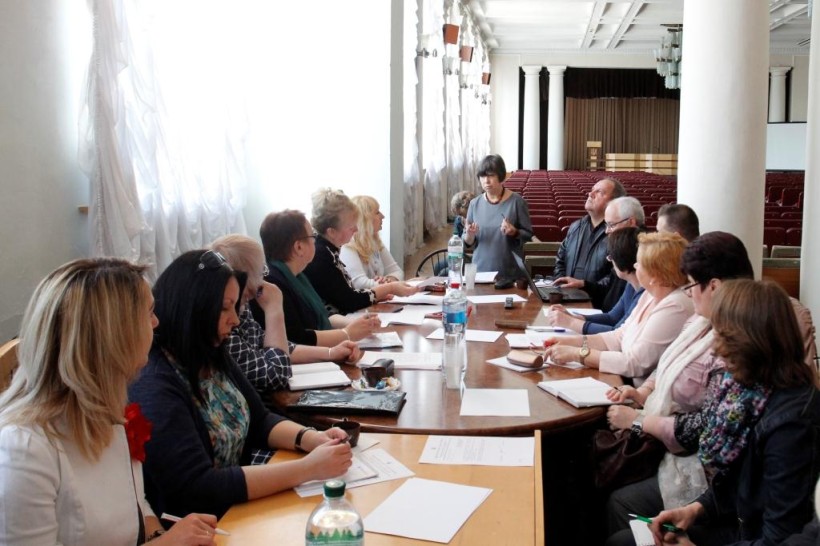The Ministry holds a meeting on the fine tuning of syllabuses in foreign languages

A meeting was held on 18 May 2016 at the Ministry of Education and Science of Ukraine to discuss for the first time the modernization of syllabuses in foreign languages.
The meeting was attended by international experts, academics, teachers, and representatives of the Ministry of Education and Science of Ukraine.
The meeting discussed updating foreign language syllabuses in primary school. The experts tacked the issue of who should be teaching a foreign language in primary schools and the steps that will need to be taken on the path to updating syllabuses. The experts were of the opinion that elementary schools must give all children an equal opportunity to receive education and especially in primary schools. In their opinion, this is particularly true of the "artificial" division of general and specialized schools which have advanced study of foreign languages. That is why it was thought best to consider the same number of hours for the study of a foreign language in primary schools. This approach is generally accepted in the European community.
Oksana Kovalenko, Chief Specialist in secondary education at the Ministry, spoke on how the first steps to develop new approaches consist of looking at how children will study in subsequent years. Today the Ministry faces the task of reviewing the approach to the study of foreign languages in elementary schools and the need to make appropriate changes in syllabuses.
Children in specialised schools are better able to process the resources used, and to provide their own motivation for learning a language. Today there is a question of bringing primary schools to a single matrix of school hours. "We appreciate the views on this subject from practicing teachers who actually work in schools", said Oksana Kovalenko.
During the meeting it was stressed that it is now necessary to change the approach in teaching foreign languages. However, determining the teaching of a foreign language should be based on a competency-based approach.
Valeriy Redko, Head of the Department of the Institute of Teaching Foreign Languages at the National Academy of Pedagogical Science of Ukraine, underlined the importance of international experience in developing syllabuses and drew attention to the need to also consider domestic experience. "The programme is a strategic document second only to the national standards, which directs the activities of schools, administrators, teachers and pupils, proposing new approaches to organizing the teaching of foreign languages. We need to move away from the notion of minimizing the content of education. The content of education needs to incorporate a sufficient level of skills, and for this purpose we need to revise the development strategy of national foreign language education", he said.
The international experts involved included those from the British Council - Viktoriya Ivanishcheva, Oleksandr Shalenko, from Cambridge University - Daryna Sizhuk, from Alliance Francaise - Nadiya Chumak, The Goethe Institute - Nadiya Sotnykova. They noted the innovative value of the previous programme, which was oriented to the Common European Framework of Reference for Languages, but stressed the need to review the results of learning at each stage of learning. This will bring the teaching process to European standards and to orient the study of foreign languages in a more practical direction.